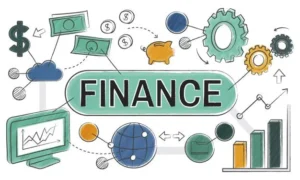Controversial finance topics encompass a wide array of discussions that spark fervent debates, challenge conventional wisdom, and often blur the lines between financial prudence and ethical considerations.
These topics delve into areas where financial principles intersect with societal values, governmental policies clash with market forces, and economic decisions affect individuals and communities in profound ways.
From debates over income inequality and corporate governance to discussions surrounding cryptocurrency regulation and the ethics of financial speculation, controversial finance topics compel us to critically examine the intricate dynamics shaping global economies and financial systems.
In this article, we delve into some of the most contentious issues that provoke diverse viewpoints, ignite passionate discourse, and underscore the complexities inherent in the world of finance.
Importance of addressing controversial Finance topics

Addressing controversial finance topics is crucial for several reasons:
- Transparency and Accountability: Controversial topics often involve areas where there is ambiguity or potential for misuse. Addressing them head-on promotes transparency in financial practices and holds institutions and individuals accountable for their actions.
- Risk Management: Controversial finance topics often point to areas of potential risk. Ignoring or avoiding these topics can lead to overlooking critical risks that could harm individuals, businesses, or even the broader economy. Addressing them allows for proactive risk management.
- Educational Opportunity: Controversial topics in finance provide valuable educational opportunities. Discussing them openly can help people understand complex financial concepts, regulations, and ethical considerations. It promotes financial literacy and empowers individuals to make informed decisions.
- Market Efficiency: Addressing controversial topics can contribute to market efficiency by reducing uncertainty and speculation. Open discussions can lead to better-informed investors and stakeholders, which can ultimately lead to more efficient allocation of resources.
- Ethical Considerations: Many controversial finance topics involve ethical dilemmas, such as insider trading, corporate governance issues, or the ethical implications of certain investment practices. By addressing these topics, we can foster a more ethical financial system and encourage responsible behavior.
- Social Impact: Finance has a significant impact on society, and controversial topics often touch upon social issues such as income inequality, environmental sustainability, or access to financial services. Addressing these topics allows for a deeper understanding of their social implications and opens the door to potential solutions.
- Regulatory Response: Controversial topics often lead to calls for regulatory reform or intervention. By addressing these topics openly and constructively, stakeholders can contribute to the development of more effective regulations that balance innovation and risk management.
Danger of avoiding controversial Finance topics
Avoiding controversial finance topics can pose significant risks and drawbacks:
- Ignorance of Potential Risks: Controversial finance topics often highlight areas of potential risk, such as market manipulation, speculative bubbles, or unethical practices. Ignoring these topics can lead to a lack of awareness or understanding of the risks involved, leaving individuals and institutions vulnerable to financial losses or systemic crises.
- Lack of Accountability: Avoiding controversial topics can perpetuate a culture of secrecy and evasion, allowing misconduct or unethical behavior to go unchecked. Without open discussions and scrutiny, individuals and institutions may feel emboldened to engage in questionable practices with impunity, eroding trust in the financial system.
- Stifling Innovation: Many controversial finance topics intersect with areas of innovation, such as cryptocurrency regulation, algorithmic trading, or alternative investment strategies. Avoiding these topics can stifle innovation by creating uncertainty and inhibiting constructive dialogue on how to regulate or harness new technologies for the benefit of society.
- Undermining Investor Confidence: Controversial topics often generate public interest and concern, particularly among investors. Avoiding these topics or failing to address them adequately can undermine investor confidence in the fairness and integrity of financial markets, leading to reduced participation, liquidity, and investment flows.
- Social and Ethical Implications: Controversial finance topics frequently touch upon social and ethical issues, such as income inequality, environmental sustainability, or corporate governance. Avoiding these topics can perpetuate systemic injustices or contribute to social and environmental harm by failing to address underlying structural problems or ethical dilemmas.
- Missed Opportunities for Reform: Controversial topics often catalyze calls for regulatory reform or policy intervention to address perceived shortcomings in the financial system. By avoiding these topics, policymakers may miss opportunities to enact meaningful reforms that enhance market transparency, stability, and fairness.
- Lack of Public Engagement: Avoiding controversial finance topics can lead to a lack of public engagement and participation in discussions about the future of finance. This can result in decision-making processes that are disconnected from the needs and perspectives of stakeholders, hindering the development of effective policies and solutions.
How to address controversial Finance topics
Addressing controversial finance topics requires a thoughtful and inclusive approach. Here are some steps to effectively address them:
- Research and Understanding: Before engaging in discussions about controversial finance topics, it’s essential to thoroughly research and understand the issue at hand. This includes studying relevant data, academic research, regulatory frameworks, and historical precedents. Having a solid understanding of the topic will enable you to contribute meaningfully to the conversation.
- Open Dialogue: Foster an environment of open dialogue and respectful debate where diverse perspectives are welcomed and valued. Encourage stakeholders from various backgrounds, including experts, policymakers, industry practitioners, academics, and affected communities, to participate in the discussion. This helps to ensure that a wide range of viewpoints is considered and promotes inclusivity.
- Fact-Based Analysis: Base discussions on facts, evidence, and empirical research rather than speculation or ideological biases. Present data and analysis in a clear and accessible manner to facilitate understanding among participants. Avoid sensationalism or spreading misinformation, as this can undermine the credibility of the discussion.
- Ethical Considerations: Recognize and address the ethical implications of controversial finance topics, such as fairness, accountability, and social responsibility. Discuss the potential impact of financial decisions on different stakeholders, including marginalized groups and future generations. Consider ethical frameworks and principles when evaluating proposed solutions or policy responses.
- Transparency and Disclosure: Promote transparency by disclosing relevant information, conflicts of interest, and decision-making processes. Be open about the sources of data, methodologies used, and assumptions made in analyses. Transparency builds trust among participants and enhances the credibility of the discussion.
- Engagement with Stakeholders: Engage with a wide range of stakeholders, including those directly affected by the controversial finance topic, such as investors, consumers, employees, and communities. Solicit feedback, input, and perspectives from these stakeholders to ensure that their voices are heard and considered in decision-making processes.
- Policy and Regulatory Analysis: Analyze the policy and regulatory implications of controversial finance topics, considering both short-term and long-term impacts. Evaluate existing regulatory frameworks and identify areas where reforms or adjustments may be necessary to address emerging challenges or mitigate risks. Advocate for evidence-based policies that balance innovation, market efficiency, and investor protection.
- Long-Term Perspective: Take a long-term perspective when addressing controversial finance topics, recognizing that many issues are complex and multifaceted. Consider the potential implications of decisions and actions over time, including unintended consequences and feedback loops. Aim to develop sustainable solutions that promote the stability, resilience, and inclusivity of the financial system.
By following these steps, stakeholders can address controversial finance topics in a constructive, informed, and ethical manner, leading to more robust discussions and meaningful outcomes.
150 controversial Finance topics

Here’s a list of 150 controversial finance topics categorized into several relevant categories:
Economic Policy and Regulation:
- Quantitative easing
- Austerity measures
- Financial transaction tax
- Dodd-Frank Act
- Glass-Steagall Act reinstatement
- Universal basic income
- Negative interest rates
- Basel III regulations
- Sovereign debt restructuring
- Tax havens and offshore banking
Banking and Financial Institutions:
- Too big to fail banks
- Bank bailouts
- Bank bonuses
- High-frequency trading
- Cryptocurrency regulation
- Shadow banking
- Credit default swaps
- Bankruptcy laws
- Insider trading
- Executive compensation in banks
Investments and Markets:
- Hedge fund regulation
- Insider trading laws
- Short-selling restrictions
- Market manipulation
- Dark pools
- Algorithmic trading
- Environmental, social, and governance (ESG) investing
- Market volatility
- Market liquidity
- Penny stocks
Corporate Finance:
- Corporate tax avoidance
- Corporate governance
- Share buybacks
- Hostile takeovers
- Corporate social responsibility
- Executive pay ratio
- Corporate lobbying and political influence
- Corporate debt levels
- Stock options for executives
- Leveraged buyouts
Personal Finance:
- Payday lending
- Student loan debt
- Predatory lending practices
- Credit card fees and interest rates
- Mortgage-backed securities
- Retirement savings crisis
- Wealth inequality
- Financial literacy education
- Consumer protection laws
- Robo-advisors and automated investing
International Finance:
- Currency manipulation
- Trade tariffs and protectionism
- International aid and development financing
- Capital controls
- Exchange rate regimes
- Sovereign wealth funds
- Global financial architecture
- Debt relief for developing countries
- International tax evasion
- Foreign direct investment regulations
Environmental Finance:
- Carbon pricing
- Green bonds
- Sustainable finance
- Carbon offsetting
- Renewable energy subsidies
- Environmental, social, and governance (ESG) disclosure
- Impact investing
- Climate change adaptation financing
- Fossil fuel divestment
- Environmental insurance and risk management
Technological Finance:
- Blockchain technology
- Initial coin offerings (ICOs)
- Decentralized finance (DeFi)
- Central bank digital currencies (CBDCs)
- Big data analytics in finance
- Artificial intelligence in finance
- Privacy concerns in financial technology
- Regulatory sandbox for fintech startups
- Cybersecurity in finance
- Algorithmic bias in lending decisions
Real Estate and Housing Finance:
- Mortgage interest deduction
- Affordable housing policies
- Real estate speculation
- Housing market bubbles
- Rent control
- Gentrification and displacement
- Mortgage-backed securities (MBS)
- Subprime mortgage crisis
- Zoning laws and land use regulations
- Property tax reform
Behavioral Finance:
- Behavioral biases in investment decisions
- Nudging for financial behavior change
- Investor sentiment and market bubbles
- Herd behavior in financial markets
- Overconfidence among investors
- Loss aversion and risk-taking behavior
- Prospect theory and investment strategies
- Financial education interventions
- Neurofinance and decision-making processes
- Ethical considerations in behavioral finance research
Insurance and Risk Management:
- Health insurance reform
- Insurance industry regulation
- Catastrophe bonds
- Reinsurance market
- Insurance coverage for climate-related risks
- Risk-based pricing in insurance
- Cyber insurance
- Insurtech innovation
- Private vs. public insurance options
- Long-term care insurance affordability
Government Spending and Fiscal Policy:
- National debt levels
- Deficit spending
- Government budget priorities
- Tax cuts vs. spending increases
- Infrastructure investment
- Entitlement reform
- Universal healthcare funding
- Military spending
- Social safety net programs
- Fiscal stimulus during economic downturns
Emerging Markets and Development Finance:
- Foreign aid effectiveness
- Microfinance impact assessment
- Infrastructure financing in developing countries
- Corruption and governance challenges
- Debt sustainability in emerging markets
- Financial inclusion initiatives
- Public-private partnerships (PPPs)
- Aid conditionality and sovereignty concerns
- Impact of globalization on developing economies
- Informal economy and financial services access
Economic Inequality:
- Wealth tax
- Income inequality
- Estate tax
- Progressive taxation
- Universal basic income
- Minimum wage laws
- Inheritance laws and wealth distribution
- Social mobility barriers
- Gender pay gap
- Racial wealth gap
Financial Crises and Systemic Risk:
- Systemic risk assessment
- Financial stability oversight
- Too-big-to-fail institutions
- Systemically important financial institutions (SIFIs)
- Contingent convertible bonds (CoCos)
- Early warning indicators for financial crises
- Regulatory responses to financial crises
- Moral hazard in bailouts
- Crisis management and resolution frameworks
- Lessons learned from past financial crises
These topics span a wide range of issues within finance and are often subject to debate and controversy due to their economic, social, and political implications.
Conclusion
Addressing controversial finance topics is essential for fostering transparency, accountability, and ethical conduct within the financial sector. By engaging in open dialogue and rigorous analysis of controversial finance topics, stakeholders can promote informed decision-making, mitigate risks, and identify opportunities for positive change.
Whether discussing banking regulations, investment practices, environmental finance initiatives, or economic inequality, addressing controversial finance topics is crucial for shaping a more resilient, inclusive, and sustainable financial system.
It is through thoughtful consideration and constructive debate on controversial finance topics that meaningful progress can be achieved in addressing the complex challenges facing our global economy.

